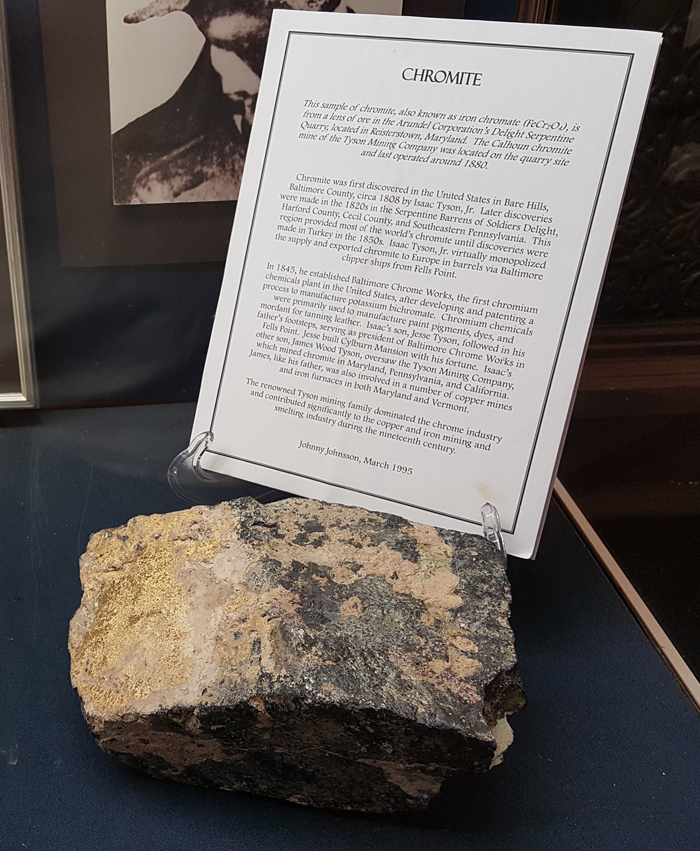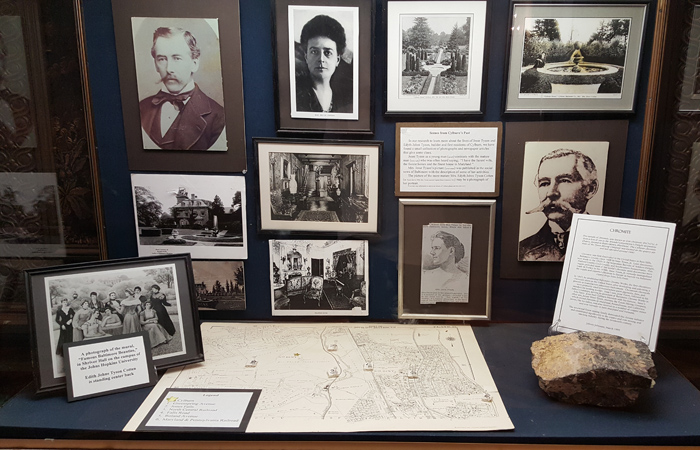The Baltimore area lies within an important Serpentine region, stretching all the way from Baltimore and over the Maryland state line into Pennsylvania. Many important Serpentine deposits lie within this area, which is also the source of the discovery of Chromite. The Cylburn Arboretum is a park with gardens and a preserved mansion in Baltimore. The mansion, known as the Cylburn Mansion, belonged the Tyson family, the owners of the Baltimore Chrome Works. In the mansion lies a specimen of Chromite with a nice description of the history of Chromite and its mining in the area. A picture of this with the plaque can be seen below.

Here is the text of the plaque:
This sample of chromite, also know as Iron Chromate (FeCr2O4) is from a lens of ore in the Arundel Corporations's Delight Serpentine Quarry, located in Reisterstown, Maryland. The Calhoun chromite mine of the Tyson Mining Company was located on the quarry site and last operated around 1880.
Chromite was first discovered in the United States in Bare Hills, Baltimore County, circa 1808 by Isaac Tyson, Jr. Later discoveries were made in the Serpentine Barrens of Soldiers Delight, Harford County, Cecil County, and Southeastern Pennsylvania. This region provided most of the world's chromite until discoveries were made in Turkey in the 1850's. Isaac Tyson, Jr. virtually monopolized the supply and exported chromite to Europe in barrels via Baltimore clipper ships via Fells Point.
In 1845, he established Baltimore Chrome Works, the first chromium chemicals plant in the United States, after developing and patenting a process to manufacture potassium bichromate. Chromium chemicals were primarily used to manufacture paint pigments, dyes, and mordant for tanning leather. Isaac's son, Jesse Tyson, followed in his father's footsteps, serving as president of Baltimore Chrome Works in Fells Point. Jesse built Cylburn Mansion with his fortune. Isaac's other, son, James Wood Tyson, ovresaw the Tyson Mining Company, which mined chromite in Maryland, Pennsylvania, and California. James, like his father, also was involved in a number of copper mines and iron furnaces in both Maryland and Vermont.
The renowned Tyson mining family dominated the chrome industry and contributed significantly to the copper and iron mining and smelting industry during the nineteenth century.
- Johnny Johnsson, March 1995
